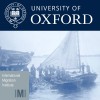THEMIS: Citizens of Kazakhstan in a Russian city: factors facilitating and limiting transnational activities (the case of Novosibirsk)
This paper discusses some results of my research, “Foreign citizens in the Novosibirsk region: factors for construction of transnational practices,” undertaken within the collective research project, “Cross-border relations in the Asian part of Russia: a comprehensive assessment of benefits and risks" (funded by the Russian Academy of Science). The paper is based on an analysis of semi-structured interviews with citizens of Kazakhstan residing in Novosibirsk, which is the principal city of the region bordering Kazakhstan. It presents migrants’ understandings of their migration process and factors facilitating or limiting their transnational activity (including transnational migration).
Both Russia and Kazakhstan participate in one migration system which emerged after the collapse of the USSR. These countries are connected by a common history, cultural ties and social links, and continued mutual economic interests. The recent introduction of the Common Economic Space – the economic and political union which encompasses Russia, Kazakhstan, and Belarus – presupposes facilitation of migration and social integration of the citizens of these countries across the covered territory. Citizens of Kazakhstan and Belarus can enter Russia without a visa. In Russia, citizens of Belarus and Kazakhstan in comparison with other foreign citizens have the greatest access to social and economic rights. Using the example of citizens of Kazakhstan residing in the region which borders Kazakhstan, my research tries to clarify factors which promote or limit creation of a transnational social space – a social space which is “composed from networks that link individuals to institutions in more than one state” (Glick Shiller, in print) – from below, in other words, the creation of transnational space via the activities of migrants themselves.




